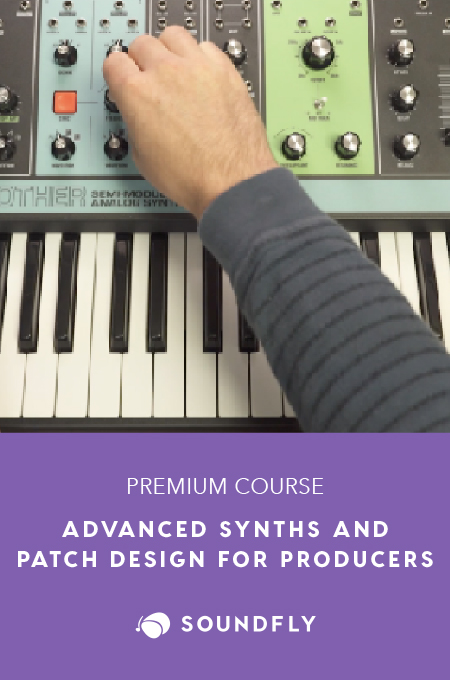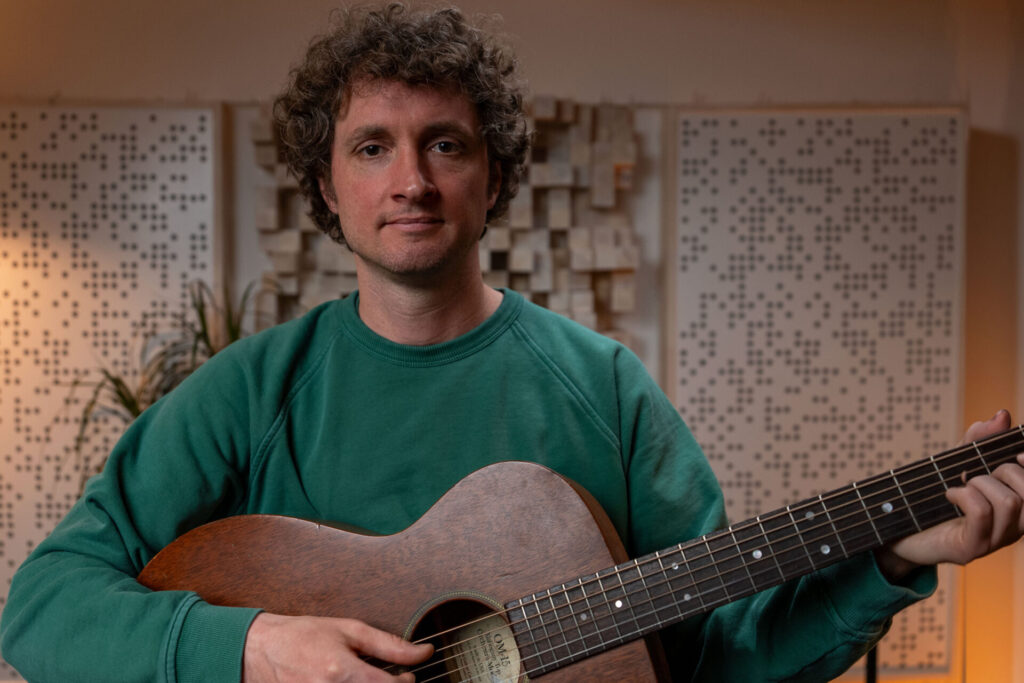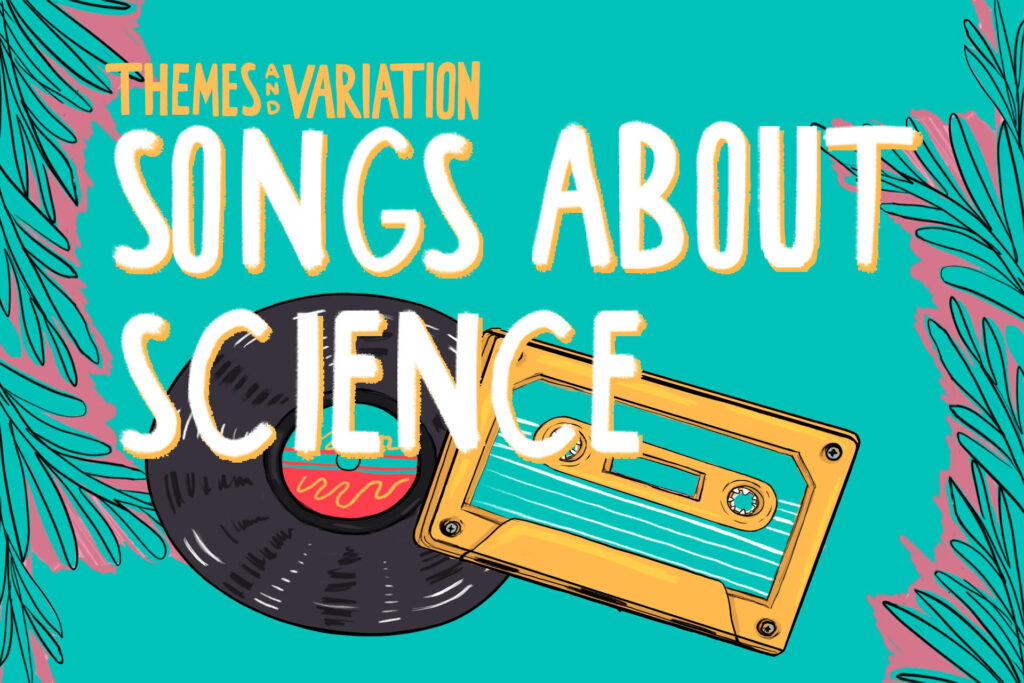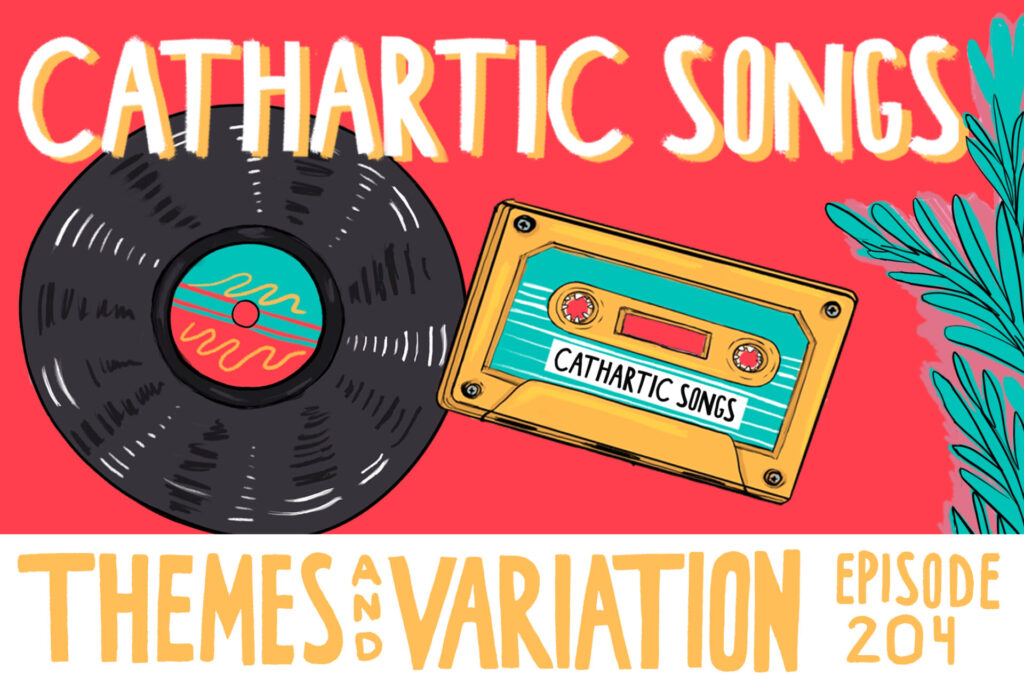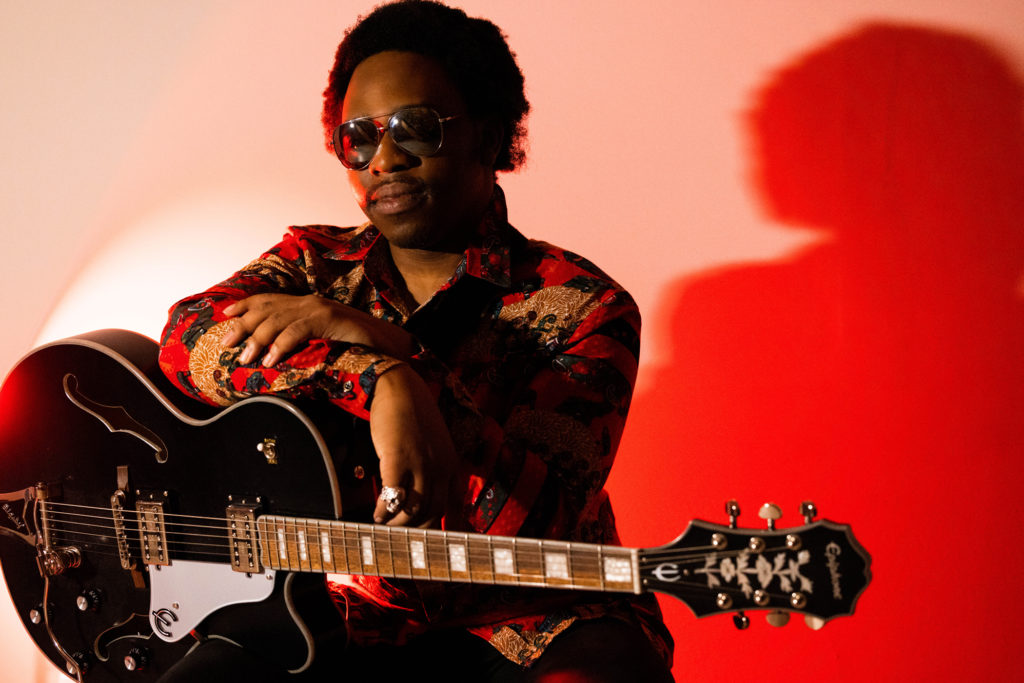
There’s a “Dude-like” quality to Mr. Samson Afolabi.
I’m referring — of course — to The Dude from the film, The Big Lebowski, and all the effortless swagger, bluesy outlook, and hippy mystique that comes along with that character. Yup, that’s Samson. His own artistic moniker, Emperor Sam, also has that familiar-yet-distant air of cool to it.
Samson makes a modern sounding blues music that recalls all kinds of influences from Hip-Hop to Zydeco to New Wave — it’s entrenched in Americana down to the marrow — but it’s also wrapped in a folkloric “outsider art” hipness that I personally find truly as infectious as it is hard to pin down. Samson came to this platform to work on his production skills with a Soundfly Mentor, and has since released a two-sided single and a full EP’s worth of material entirely self-recorded. I’d say the learning sticks!
We started chatting after the first two singles came out; the A-side being his own and the B-side a cover version of a song by Creedence Clearwater Revival, a band who in my opinion tick a lot of the same character boxes as The Dude and Emperor Sam both. So, all in all, I can’t help but be reminded of that iconic theft report reality check from The Big Lebowski: “I wouldn’t hold out much hope for the tape deck, or the Creedence…”
In this case, I think we can.
Enjoy my recent conversation with Samson Afolabi about his music and the lessons he learned working with a Soundfly mentor. Enjoy!
Q: You recently released a two-sided single, “Five O’One Blues” / “Green River” under your Emperor Sam moniker — congrats! Your sound is one of the more unique combinations of genres I’ve ever heard, it’s a spectacular melding of Blues/Zydeco, New Wave, with a hint of West African rhythms. Let’s start here, how did you find this sound?
A: Thank you very much! My musical journey has spanned several genres and I like mixing and matching them to get something truly catchy and different out of music.
My main stylistic goal that led to this release was to create a potent mix of blues and hip-hop, with heavy influence from psychedelic funk. I think while the blues is very influential in music in general, it is not a common sound in popular music nowadays, and I think this combo can bring some newfound excitement to modern music.
My Nigerian heritage is where the West African influence comes from, and I am a fan of classic Afrobeat and Highlife music, as well as modern Afrobeats and Afroswing artists. While I was growing up in the US, I became a huge hip-hop head, in love with both ’90s hip-hop and modern trap. When I moved to the UK, I really got into grime, drill, and UK hip-hop artists, but I also started listening to classic rock from the ’60s, before I completely immersed myself in the world of psychedelic rock and blues music. All in all, some of my biggest musical influences would include Howlin’ Wolf, Muddy Waters, the Doors, Sly and the Family Stone, Jimi Hendrix, Janis Joplin, Parliament-Funkadelic, Metro Boomin’, Kanye West, Billie Eilish, Dr. Dre, and Siouxsie Sioux.
Can you talk a bit about “Five O’One Blues,” where does this story come from?
“Five O’One Blues” came about around the time that news of “the Great Resignation” was going around, and I started to think up some stories based on stuff I’d heard about terrible working conditions and greedy bosses making profit off the pandemic. So, once I started thinking in that way, the ball got rolling with regards to lyrics.
I then wanted another song to back up the single, so I thought to do a cover of CCR’s “Green River,” which I’ve always loved, as the song has a booming presence and a big nostalgic tone that I quite appreciate.
Do you write and record all the parts in your songs or are there guest musicians and collaborators involved? And do you welcome collaboration?
Yes, these songs were written and recorded by myself, with some vocal production help from Slowwave Audio from Milkboy Studio. I’ve mainly been making music by myself for the last few years but I am definitely open to collaboration. To that end, I will actually soon start playing and recording with a full band to bring out more expansive music, which I’m really excited about.
So what is your songwriting (and production) process like exactly? What elements do you start with and how do you build your tracks?
Most of the time, I’ll be going about my day and I’ll either hear a particular melody or rhythm part from a song, and start envisioning a musical idea from there, or be randomly jamming on an instrument and come up with an idea then. I’ll then start imagining what other ideas I could add to the song or pull from other works, painting a mental picture and writing it all down.
Once I’m ready to work on a song idea, I’ll dump all those initial ideas into my DAW and start tinkering around with them for as long as it takes until I have a complete song. That’s how I write the majority of my songs.
Some of the best sessions come when you get a random feeling or idea, go into a studio or home setup, and get it all out in a manic rush, then go back to polish it up later.

Lyrically, in general what are themes you like to play with and do you have goals you set for yourself when you set out to write a song, or a collection of songs?
Story-driven songs are some of my favorites to create, and I like to incorporate all kinds of stories and events that I’ve read, seen, and experienced and essentially play the role of the storyteller to spread the word. These could be serious topics like worker’s rights or war, but also random and normal things like a good club night out or new life changes.
Basically, I like to write about people’s realistic day-to-day lives in a way that’s entertaining and empathetic, so listeners know it’s not only them that goes through these things.
The mixing on these tracks sounds incredible by the way! You worked heavily on your production in a mentorship session with Brandon Miranda. What kinds of things did you work on together?
Thank you! Brandon was a big help with helping me formulate this sound of mine when I was starting out in production. We talked about sound design, arrangement, the never ending struggle of drums and recording vocals, along with other production techniques.
One of the things I remember he taught me was how to craft a signature sound while still experimenting, a process I’m still learning to utilize to this day!
+ Learn about Soundfly’s goal-oriented custom mentorship program, and fill out a quick form to get paired with a mentor (like Brandon) to improve your skills!
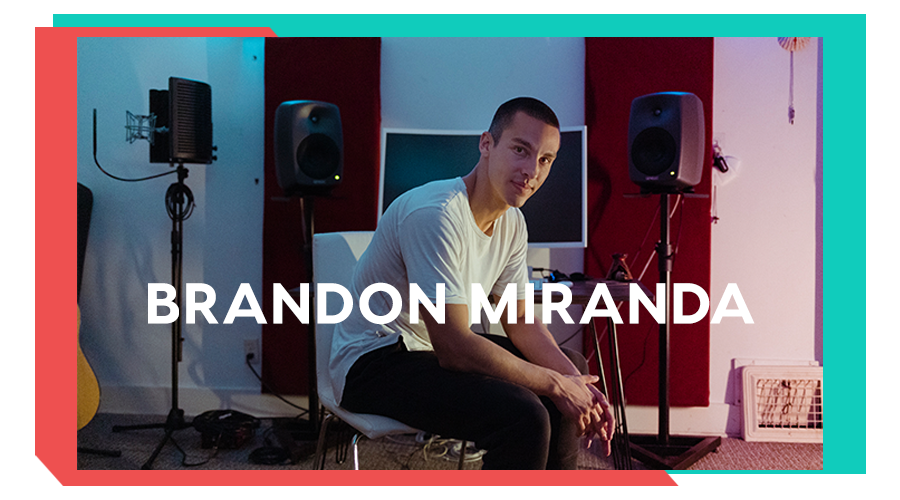 How was that coaching process in general for you?
How was that coaching process in general for you?
It definitely helped me to take my music further, as before the coaching session, I was in a stage of limbo in my music making where I was generating ideas but not making any actual music. So it helped me to get back on the horse and produce some discipline in an environment that was conducive to learning as well.
What brought you to Soundfly originally?
I had an account a while ago and took a browse through a lot of the premium course content to help with my music, and I learned about the mentorship during this time, so I decided to check it out and see if it was for me… I’m glad I made that choice!

What’s next for you?
Well after the single, I released the EP, called 21st Century Blues, and now, I am recording more music that I’m looking to release in a bigger body of work before the end of the year.
In the meantime, I’m working on performing live and building a band, putting out more content on my TikTok and other socials, and creating cover music videos to showcase various musical styles.
Ready for a custom session of your own?
Soundfly’s community of mentors can help you set the right goals, pave the right path toward success, and stick to schedules and routines that you develop together, so you improve every step of the way. Tell us what you’re working on, and we’ll find the right mentor for you!
